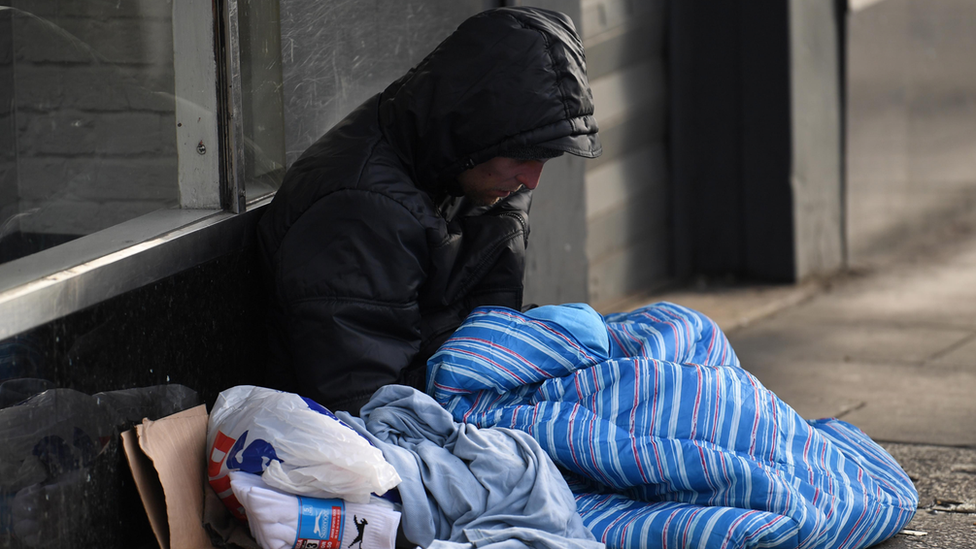Ashley Foundation: Ex-charity boss 'spent funds on luxury items'
- Published

The Charity Commission found evidence of serious financial mismanagement
The former boss of a homelessness charity spent thousands of pounds of its funds on luxury items and travel, an investigation has found.
The Charity Commission said its inquiry had uncovered evidence of serious financial mismanagement at the Ashley Foundation in Lancashire.
The regulator said funds were used to benefit former chief executive Lee Dribben and former trustees.
The findings have been referred to Lancashire Police.
Lisa Edwards, the current chair of trustees, said it was "deeply distressing" but the findings were "sadly, as we suspected".
"We would like to make it clear the trustees and former CEO referred to in the commission's inquiry report are no longer, in any way, connected to the Ashley Foundation," she added.
She thanked the commission for its "thorough investigation" after she and the current chief executive raised concerns.
The charity, registered in 1997, operates hostels and flats for homeless people in Blackburn, Blackpool and Sunderland.
The Charity Commission investigation, which started looking into the charity in August 2019, found Mr Dribben spent more than £3,000 on a three-night trip to London, with first class travel and meals at Le Caprice and the Wolseley Hotel in Mayfair.
Charity funds were also inappropriately spent on Apple watches, flat screen televisions, a hairdryer and silk sheets, the regulator said, which Mr Dribben claimed were gifts "for people we thought would be of help to us in the future".
He also bought a Spymaster tracking system, which the inquiry was told was used to monitor people during contract negotiations with the charity.
The Charity Commission said this was inappropriate and that "covert activity is unacceptable" for a charity.
'Highly-disadvantageous agreements'
The investigation also found that thousands of pounds of charity funds were spent on the repair and upkeep of personal properties belonging to Mr Dribben and his son Ashley, a former trustee.
Another former trustee, David Kam, signed blank cheques to be drawn on the charity's bank account, meaning he could not be certain how much would be paid or to who, the regulator said.
It said former trustees sold several of the charity's properties housing vulnerable homeless people before entering into "highly-disadvantageous agreements" with a third party to manage these properties.
The regulator said current trustees have taken action, such as reacquiring the sold properties, and it is satisfied that appropriate controls are in place.
It disqualified Lee and Ashley Dribben from charity trusteeships and senior management for 15 years, and Mr Kam, a former chairman of the charity, for 10 years.
Amy Spiller, head of investigations at the Charity Commission, said she commended the current board of trustees "for identifying the serious wrongdoing and initiating action to put the charity's house in order".
'Extremely disappointed'
In a statement, Ashley Dribben said he was "extremely disappointed" by the report, "of which they have taken three years to conclude and publish".
He added: "In relation to the property sales, it was documented that I was acting in my professional capacity.
"The buildings were independently valued at £885,000 and I brought an offer for £4m.
"It was documented that I would be paid a fee by the buyer, and therefore I withdrew from voting on the matter.
"In relation to my father, my parents founded this charity over 20 years ago and I am incredibly proud of the work they did.
"They housed and supported thousands of people in that time, and my father left TAF with over £4 million in the bank."
He also claimed: "Last year, TAF paid my father a settlement for wrongful dismissal."

Why not follow BBC North West on Facebook, external, Twitter, external and Instagram, external? You can also send story ideas to northwest.newsonline@bbc.co.uk, external